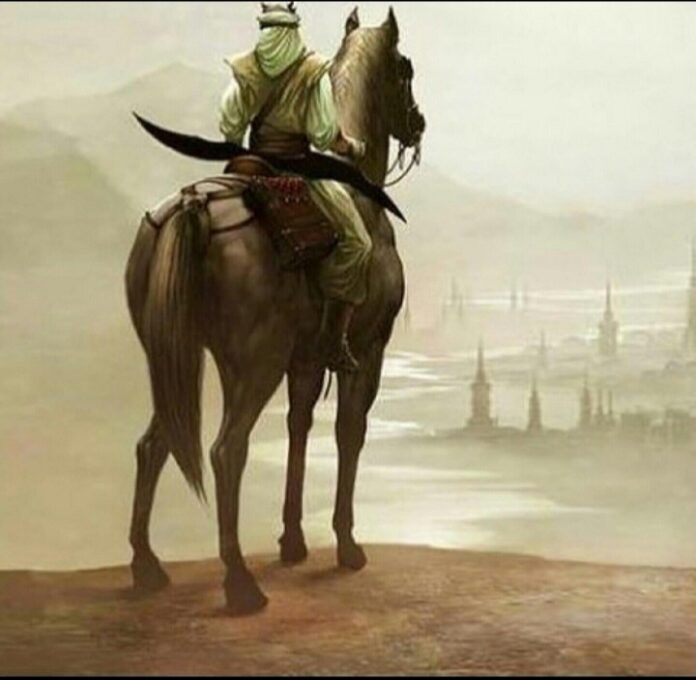Khalid ibn al-Walid: The sword of Allah
Khalid ibn al-Walid (RA), famously known as Saifullah, “the Sword of Allah” was one of the greatest military commanders in Islamic history. His name strikes awe and admiration in the hearts of Muslims to this day, not only for his battlefield victories but also for his unwavering faith, leadership, and service to Islam.
Early Life and Conversion to Islam
Khalid was born into the powerful Quraysh tribe of Makkah and was initially a fierce opponent of Islam. He fought against the Muslims in the Battle of Uhud, where his strategic genius helped turn the tide in favor of the Quraysh.
However, as the truth of Islam became clear to him, Khalid accepted Islam in 629 CE, just before the Treaty of Hudaybiyyah. His conversion was a significant turning point, as the Muslim army gained not only a devoted believer but also a military mind of unmatched brilliance.
The Sword of Allah
Khalid’s military career under the banner of Islam was nothing short of legendary. He never lost a single battle throughout his life. Among his most famous campaigns were:
Battle of Mu’tah: Shortly after embracing Islam, Khalid led the outnumbered Muslim forces to a successful retreat, saving them from complete destruction after the deaths of three commanders. It was after this battle that Prophet Muhammad ﷺ gave him the title Saifullah.
READ ALSO: Tariq Ibn Ziyad, the bold conqueror who changed the course of history
Battle of Yarmouk: A decisive victory against the Byzantine Empire that marked the collapse of Roman control in Syria.
Battle of Walaja and Ullais: Victories against the Persian Sassanid Empire, showcasing Khalid’s genius in tactics such as the famous double envelope maneuver.
Leadership and Devotion
Khalid ibn al-Walid was not just a warrior but a deeply spiritual man. He fought for the sake of Allah, not for fame or power. His discipline, humility, and commitment to the mission of Islam made him a respected leader among both his men and his superiors.
In a remarkable show of submission to authority, Khalid accepted his removal as commander by Caliph Umar ibn al-Khattab (RA) without protest or rebellion, continuing to serve Islam loyally.
Death and Legacy
Despite his lifelong service on the battlefield, Khalid died of natural causes in 642 CE, lamenting that he died on a bed rather than in combat. He is reported to have said:
“I have fought in so many battles seeking martyrdom, but here I die on my bed like a camel. May the eyes of cowards never sleep.”
READ ALSO: From Burglary to Blessings: Profound encounter between Maalik ibn Deenaar and a repentant thief
Khalid ibn al-Walid’s legacy is eternal. His military strategies are studied to this day, and his unwavering faith and loyalty remain a model for Muslim warriors and leaders.
Conclusion
Khalid ibn al-Walid (RA) exemplifies what it means to be a warrior for the sake of Allah, fearless in battle, yet humble in victory; firm in leadership, yet obedient to authority; a man whose sword defended Islam and whose heart beat only for the truth. His life is a shining chapter in the history of Islam.
Follow the Neptune Prime channel on WhatsApp:
Do you have breaking news, interview request, opinion, suggestion, or want your event covered? Email us at neptuneprime2233@gmail.com





